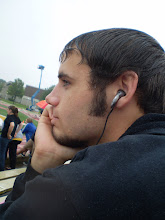Obviously, this is bad. There is a small resistance against this organization, led by a man named Ransom who has the "favor," I guess you could say, of the gods of all the other planets of the solar system.
Well anyways, once this evil organization gets powerful enough, it gets the attention of all the other gods, and they come to Ransom's house to hold a meeting to decide what to do to stop it.
My favorite chapter of the book is the chapter in which the gods gather. Each of the planetary gods in the book are different ways of describing the true God of the real world. It's amazing because you really can see all of these aspects of God in each of the different gods of the Planets. And it's even more amazing to think that they are all contained in one being. It's so interesting to me.. something I've thought about for a long time is how different people take different things from God. Everyone sees Him a little differently, sometimes a lot differently. Is God love? Yes. Is He wrathful? Yes. Did He create music for us to worship Him with? Yes. Is He infinitely above us? Yes. Did He come to dwell among us and serve us? Yes. Does He control everything? Yes. Does He sympathize with us? Yes. Does He discipline us? Yes. Does He comfort us and bless us? Yes. and so much more.
I think most of us are right. We just focus on different parts of the same God. Isn't that funny? Some people will naturally understand one of God's "faces" much more clearly than the rest.
Anyways, Lewis describes in pretty amazing detail how Ransom and all the others undergo massively emotional experiences which match up with the personality of each of these planetary gods, when each of them arive. This one the one that I can relate to by far the best out of any; Saturn. This is the face of God that I most easily see. This is what first comes into my mind when I think of God, in most cases at least. I was blown away by this section of the book. I was also convicted that I need to seek the other faces of God, instead of always dwelling on the one I know best: the one that falls most in line with who I am. There is so much more to God to be explored. I am stubborn in my thinking. How foolish of me to focus only on the God that I can easily see without seeking out the fullness of the God that contains all things.
This one is
Saturn:Saturn, whose name in the heavens is Lurga, stood in the Blue Room. His spirit lay upon the house, or even on the whole Earth, with a cold pressure such as might flatten the very orb of Tellus to a wafer. Matched against the lead-like burden of his antiquity the other gods themselves perhaps felt young and ephemeral. It was a mountain of centuries sloping up from the highest antiquity we can conceive, up and up like a mountain whose summit never comes into sight, not to eternity where the thought can rest, but into more and still more time, into freezing wastes and silence of unnameable numbers. It was also strong like a mountain; its age was no mere morass of time where imagination can sink in reverie, hut a living, self-remembering duration which repelled lighter intelligences from Its structure as granite flings back waves, itself unwithered and undecayed but able to wither any who approach it unadvised. Ransom and Merlin suffered a sensation of unendurable cold; and all that was strength in Lurga became sorrow as it entered them. Yet Lurga in that room was overmatched. Suddenly a greater spirit came - one whose influence tempered and almost transformed to his own quality the skill of leaping Mercury, the clearness of Mars, the subtler vibration of Venus, and even the numbing weight of Saturn.
The sheer overwhelming, impossible greatness of God is described here. Transcendence. The God who we can't even fathom. Heavy to the point of crushing everything. Infinitely wise, strong, unapproachable by our feeble humanity.
The next one to come is the one without his own planet, he is the ruler of all of them. The King of Kings. Lewis says of him, "Before the other angels a man might sink: before this he might die, but if he lived at all, he would laugh. If you had caught one breath of the air that came from him, you would have felt yourself taller than before. Though you were a cripple, your walk would have became stately: though a beggar, you would have worn your rags magnanimously."
That should make you smile.
It's good to be stretched to think outside of my little box of thinking. That needs to happen more often, I think.

No comments:
Post a Comment